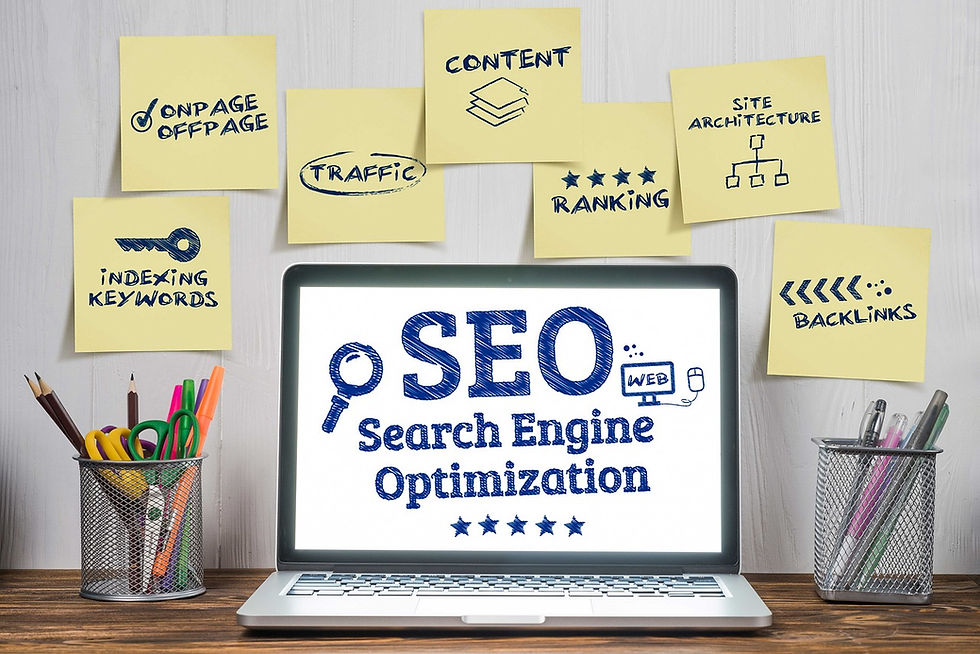SEO AI and User Experience: A Perfect Match
- ramonsmith622
- Sep 10
- 3 min read

In the digital age, businesses are constantly seeking ways to stand out in an increasingly crowded online space. Search Engine Optimization (SEO) has long been the backbone of digital marketing strategies, helping websites attract organic traffic and improve visibility on search engines. However, the landscape of SEO is rapidly evolving with the integration of artificial intelligence (AI). This powerful combination of SEO AI and user experience is transforming the way websites engage visitors and rank in search results.
At its core, SEO is about ensuring that search engines understand your website's content and can present it to users who are actively searching for relevant information. Traditionally, SEO strategies focused heavily on keyword optimization, backlinks, and meta descriptions. While these elements remain important, user experience has become an equally crucial factor in determining a site’s ranking. Google and other search engines are now prioritizing websites that offer smooth, engaging, and intuitive experiences for users.
This is where AI steps in. AI-powered tools analyze vast amounts of data to understand user behavior, content performance, and search intent in ways that humans simply cannot do manually. By leveraging AI, businesses can gain insights into which pages keep visitors engaged, which content drives conversions, and how users navigate through a website. This data-driven approach allows marketers to optimize their sites not just for search engines but also for the people who actually use them.
One of the most significant advantages of integrating AI into SEO is its ability to personalize content. AI algorithms can predict user preferences based on browsing history, demographics, and even subtle behavioral cues. This means that instead of a one-size-fits-all approach, websites can deliver tailored experiences that keep visitors interested and reduce bounce rates. When users feel understood and find content that resonates with their needs, engagement naturally increases, which in turn positively impacts SEO rankings.
Moreover, AI can help streamline the technical aspects of SEO, which often intimidate small businesses and new website owners. From automatically generating meta tags to analyzing site speed and mobile responsiveness, AI tools can handle time-consuming tasks efficiently. This allows content creators and marketers to focus more on crafting high-quality, compelling content while still ensuring their website is technically optimized for search engines. It's a win-win situation where SEO and user experience enhance each other.
A critical area where seo ai and user experience intersect is content optimization. AI can identify which topics are trending in your niche, predict which keywords will perform best, and even suggest improvements for readability and engagement. By using AI insights, writers can create content that resonates with readers while aligning with SEO best practices. This fusion of creativity and data ensures that your website remains relevant, engaging, and discoverable, no matter how competitive your industry is.
Speaking of staying competitive, businesses that embrace SEO AI early often see tangible benefits. Websites that provide a seamless, personalized experience are more likely to retain visitors, encourage repeat visits, and convert casual browsers into loyal customers. Search engines notice these patterns. Higher engagement, longer session durations, and lower bounce rates signal that your site is valuable and relevant, boosting its position in search results. Essentially, improving user experience with the help of AI doesn't just please visitors—it pleases search engines too.
For those ready to take their website performance to the next level, incorporating AI into your SEO strategy is no longer optional; it’s essential. By combining AI-powered insights with a focus on user-centric design, businesses can create digital experiences that captivate audiences and outperform competitors. Whether it’s through predictive content, automated technical optimizations, or personalized recommendations, SEO AI makes it possible to understand and serve your users better than ever before.
If you’re curious about how this works in practice, think about the concept of "seo ai" tools that help analyze user behavior, suggest improvements, and automate optimization. These tools bridge the gap between data and experience, providing actionable insights that directly enhance how visitors interact with your site. The result is a website that feels intuitive, responsive, and genuinely engaging—a place users want to return to repeatedly.
In conclusion, the marriage of SEO AI and user experience is not just a trend; it’s the future of digital marketing. Businesses that leverage AI to understand their audience, optimize content, and streamline technical tasks are better positioned to succeed in an ever-changing online ecosystem. By prioritizing both search engine visibility and user satisfaction, websites can achieve sustainable growth and build lasting relationships with their audience. As technology continues to advance, those who embrace this synergy will find themselves ahead of the curve, delivering experiences that are not only optimized for search engines but also deeply meaningful for users.

Comments